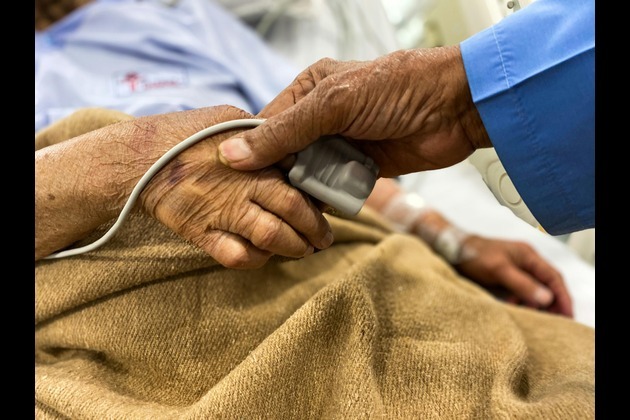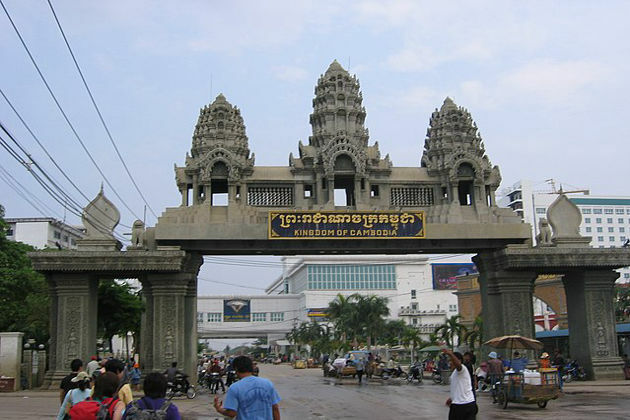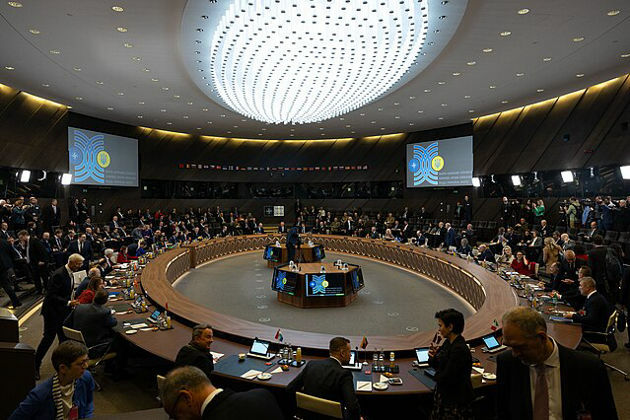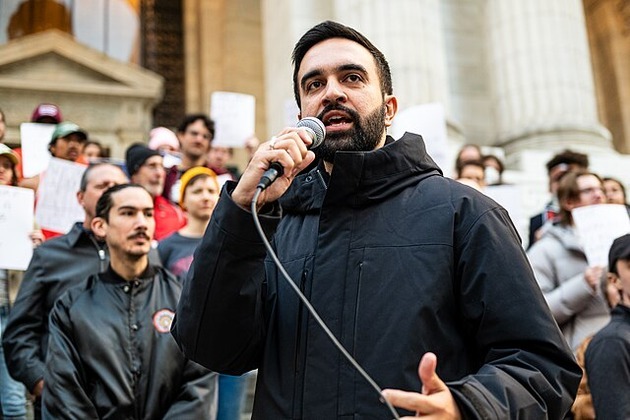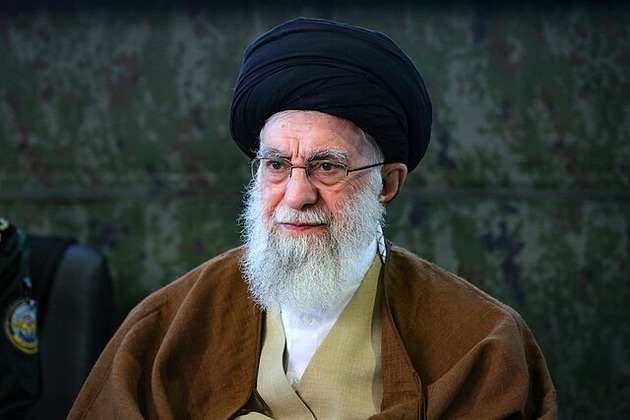Special Decolonization Committee Adopts Resolution Asking Argentina, United Kingdom to Resume Talks towards Resolving Sovereignty Dispute over Falkland Islands (Malvinas)
Press UN
18 Jun 2025, 20:09 GMT+10

Continuing its 2025 session, the Special Committee on Decolonization today adopted a new resolution reiterating its position that the sovereignty dispute over the Falkland Islands (Malvinas)* must be resolved through peaceful and negotiated means.
The 29-member body — formally known as the Special Committee on the Situation with regard to the Implementation of the Declaration on the Granting of Independence to Colonial Countries and Peoples — annually reviews the list of 17 Territories whose people have not yet attained a full measure of self-government.
Acting without a vote, the Special Committee adopted the draft resolution “Question of the Falkland Islands (Malvinas)” (document A/AC.109/2025/L.8), by which it requested the Governments of Argentina and the United Kingdom “to consolidate the current process of dialogue and cooperation through the resumption of negotiations in order to find as soon as possible a peaceful solution to the sovereignty dispute relating to the question of the Falkland Islands (Malvinas)”. The draft was introduced by the representative of Chile, also on behalf of Bolivia, Cuba, Ecuador, Nicaragua and Venezuela.
At the outset of the meeting, the Special Committee heard presentations from several petitioners, in keeping with the practice of previous sessions.
Petitioners Identifying as Legislative Assembly Members Make Their Case
“I speak for Falkland Islanders” — neither for the United Kingdom nor Argentina, said Mark Pollard, who identified himself as an elected member of the Falkland Islands (Malvinas) Legislative Assembly, adding that they are not “a pawn in a political game” or “a footnote in someone else’s history”. “We are a people,” he declared, noting that their “ancestors arrived not as conquerors, but as caretakers, custodians of our environment, taming the land, raising families and building homes”. He said that they are not implanted, but are rooted. “We are here to stay,” he stressed. Self-determination is neither a slogan nor up for sale. “It is our right, it is our voice, it is our future,” he insisted. When 99.8 per cent of its people voted in 2013 to remain a United Kingdom overseas territory, they did so with clarity and caution, he said, inviting the Special Committee to send a visiting mission to speak with the people there.
Peter Biggs, also introducing himself as a member of the Falkland Islands (Malvinas) Legislative Assembly, said that the first member of his family arrived there in 1842, with his father’s side from England and his mother’s side from Sweden. A few years later, they moved south-east to help build a new settlement, which later became the city of Stanley. In 1982, “we were invaded by Argentina”, he said, describing how his wife was five months pregnant at the time. He expressed hope that under a democratic Government in Argentina, there is now regret that the previous military Government caused the tragedy in the Falkland Islands and recognition that violating the sovereignty of another peaceful people is fundamentally wrong. “To call the Falkland Islands a colony of the United Kingdom is incorrect,” he said. It was, but has now evolved “by choice and mutual agreement between the Governments of the United Kingdom and the Falklands into a British overseas territory”.
Descendants Recount History, Contributions of Their Ancestors to Islands
Paula Vernet, introducing herself as a “direct descendant of Luis Vernet, the first political and military commander of the Malvinas Islands”, recalled how her ancestor worked to populate and exercise sovereignty over the Islands with Argentina’s permission. “This was an act of peaceful, public and legitimate sovereignty,” she stressed. She added: “I tell you this history because the current inhabitants of the Islands often point to their prosperity as a fruit of their efforts — but my family lived on the Islands before they did.” Her family, she said, created work and invested in the Islands’ development; however, “that path was interrupted in 1833 when British forces turfed out the Argentine population and their authorities by force”. “Since then, my family — like so many others — lives with the open wound of a sovereignty snatched from them,” she stated.
Ricardo Ancell Patterson, introducing himself as the “great-great-grandson of Scottish immigrants that were settled for a time in Malvinas”, recalled the myriad difficulties faced by these pioneers who established institutions, transportation and communications “drip by drip”. Underscoring the need to “get rid of the last vestiges of colonialism”, he said: “This sad inheritance from the nineteenth century is one we need to get rid of if we are to move forward with the twenty-first.” He therefore urged the United Kingdom to abide by UN mandates and negotiate in good faith to find a lasting solution to this question. “History is on our side because the occupation of 1833 displaced the inhabitants of Malvinas,” he said, adding: “For that reason, the self-determination of an implanted population is an attitude that we consider wrong.”
Foreign Affairs Minister of Argentina Advocates Resuming Substantive Bilateral Dialogue with United Kingdom
Also addressing the Special Committee was Gerardo Werthein, Minister for Foreign Affairs, International Trade and Worship of Argentina, who said that the British occupation of the Malvinas Islands in 1833 was an act of force that expelled Argentina’s legitimate authorities and settlers. “It was, unequivocally, a colonial act, in violation of international law and of Argentina’s territorial sovereignty,” he said, noting that his country has consistently sought to reclaim the islands for over 190 years. He recalled UN General Assembly resolution 2065 adopted in 1965, which recognizes the existence of a sovereignty dispute and calls for bilateral negotiations between Argentina and the United Kingdom, taking into account the interests — but not the wishes — of the current inhabitants, while respecting Argentina’s territorial integrity as outlined in Assembly resolution 1514 (XV) on decolonization.
He firmly rejected the United Kingdom’s repeated use of the principle of self-determination to justify its claim, arguing that it is not applicable to the Malvinas. The Islands’ population was implanted by the United Kingdom after forcibly removing Argentines in 1833. The current demographic configuration of around 3,000 settlers or their descendants with no prior link to the territory — alongside 1,200 British troops — cannot be regarded as a “people” entitled to self-determination. “Doing so would legitimize a situation born of illegitimate occupation,” he said, stressing that international law and multiple UN resolutions do not support legitimizing an occupation through the presence of a population installed by the occupying Power. Instead, the decolonization process must uphold national unity and territorial integrity. Despite the suspension of negotiations, “we believe there are favorable conditions to begin a new phase of dialogue, enabling us to constructively address all issues of mutual interest, including the question of sovereignty”, he said.
Speakers Voice Support, Cite Declarations of Endorsement of Argentina’s Legitimate Rights
In the ensuing debate, the representative of Ecuador, speaking for the Brasília Consensus, recalled that South American foreign and defence ministers agreed on a “special declaration on the Malvinas question” in November 2023. In it, they reaffirmed support for Argentina’s legitimate rights in its sovereignty dispute with the United Kingdom over the Malvinas, South Georgia and South Sandwich Islands and the surrounding maritime area. Further, they underscored that the United Kingdom’s military presence there “ran counter” to the regional policy of achieving a peaceful resolution to this sovereignty dispute. In his national capacity, he reiterated Ecuador’s “traditional and long-standing” support for Argentina’s legitimate sovereign rights over the islands and surrounding maritime area. He also rejected attempts to apply the principle of self-determination to this issue as “incompatible” with Argentina’s territorial integrity.
Uruguay’s delegate, speaking for the Southern Common Market (MERCOSUR), recalled that Bolivia, Chile and MERCOSUR States signed a declaration that affirmed support for Argentina’s legitimate rights over the Malvinas Islands. That declaration has been renewed by MERCOSUR Heads of State “in all meetings held to date”, she said — most recently in Montevideo in 2024. She also stressed that unilateral measures — including the exploitation of renewable and finite natural resources in the area under dispute — are “not compatible with what has been agreed upon in the United Nations”. In her national capacity, she said that Uruguay’s belief in Argentina’s sovereign rights over the islands and maritime areas in question “is rooted in historical, geographical and political beliefs”. Adding that this issue involves a sovereign dispute between Argentina and the United Kingdom, she stressed: “They alone need to negotiate, and that is how we find a solution.” Nevertheless, she concluded: “The Malvinas Islands are Argentine.”
“Cuba will continue to champion efforts to ensure that Latin America and the Caribbean can be a region free of colonialism,” said the country’s representative, expressing support for Argentina’s sovereignty claim over the Malvinas, South Sandwich and South Georgia Islands by citing the Special Committee’s 41 resolutions on the matter and the relevant General Assembly resolutions. She opposed a visiting mission to the Malvinas, considering it “inappropriate because there is no colonized people in place”. She added, however, that the Secretary-General’s good offices mission over the Malvinas question is a valuable tool to bring the parties to the negotiating table. She therefore recommended that the working documents of the Secretariat include information regarding the efforts of the Secretary-General on this matter.
“We firmly support Argentina’s legitimate claim to sovereignty over the Malvinas Islands, and have always advocated the settlement of territorial disputes between States through peaceful negotiations,” said China’s delegate. This question involves the historical legacy of colonialism, he added — which, through forcible conquest, political suppression, economic exploitation and racial discrimination, has left in its wake “scarred memories and countless crimes”. Recalling that the UN has been actively promoting decolonization since its establishment, he observed that its “vicious consequences” persist 80 years later. “A few countries — instead of deeply reflecting on the past — are turning back the clock” to “exploit others in their own selfish interests”, he said, calling on the international community to “jointly eradicate the manifestations of colonialism in today’s world”.
The speaker for Timor-Leste said that while acknowledging Argentina’s historical claims and national aspirations, his country also recognizes the United Kingdom’s current administrative role over the territory. Acknowledging both parties’ legitimate interests and perspectives is imperative for fostering a constructive environment conducive to dialogue, he said, adding that recognizing sovereignty claims invites “a balanced approach that appreciates the validity of diverse narratives and the necessity of bridging them through dialogue”.
No One-Size-Fits-All Solution to Non-Self-Governing Territories
The representative of Indonesia said that there is no “one-size-fits-all solution” in the context of Non-Self-Governing Territories, as “each case demands a tailored approach grounded in historical, political and legal contexts”. Sierra Leone’s representative concurred, adding that the Special Committee — when addressing each situation on a case-by-case basis — must consider “the wishes, aspirations and well-being of the inhabitants of these Territories”.
Armenia’s delegate pointed to his country’s “steadfast” commitment to the peaceful settlement of disputes pursuant to the Charter of the United Nations and international law. “In this context, Armenia recognizes the importance of constructive dialogue between the concerned parties,” he said. The speaker for Saint Vincent and the Grenadines urged both sides to renew their commitment to meaningful bilateral negotiations and identify and pursue areas of cooperation, emphasizing: “Even the most deeply rooted disputes can be resolved through sustained, sincere and respectful dialogue.”
__________
* A dispute exists between the Governments of Argentina and the United Kingdom of Great Britain and Northern Ireland concerning sovereignty over the Falkland Islands (Malvinas).
 Share
Share
 Tweet
Tweet
 Share
Share
 Flip
Flip
 Email
Email
Watch latest videos
Subscribe and Follow
Get a daily dose of Belfast Bulletin news through our daily email, its complimentary and keeps you fully up to date with world and business news as well.
News RELEASES
Publish news of your business, community or sports group, personnel appointments, major event and more by submitting a news release to Belfast Bulletin.
More InformationNorthern Ireland
SectionAmazon still trails UK grocers on fair supplier treatment
LONDON, U.K.: Amazon has once again been rated the worst major UK grocery retailer by its suppliers when it comes to following fair...
UK and France issue heat warnings as temperatures climb
LONDON/PARIS: British and French authorities have warned people to stay safe as an early summer heat wave brings unusually high temperatures...
Confused bot named Alyssia replaces human response on Iranian phones
DUBAI, U.A.E.: British Iranians living in the U.K. are taken aback when they try to reach their families in Tehran on the phone and...
Assisted dying bill clears key hurdle in UK Parliament
LONDON, U.K.: In a landmark moment for Britain, lawmakers in the House of Commons have voted in favour of legalising assisted dying,...
Bhatia 35th as Scheffler takes 3-way lead with Thomas, Fleetwood at Travelers
Cromwell [US] June 22 (ANI): Akshay Bhatia was tied-35th after a round of even par 70, which included an eagle in the Travellers Championship....
Rise in farm incomes for 2024 welcomed - Muir
Rise in farm incomes for 2024 welcomed - Muir Date published: 26 June 2025 DAERA Minister Andrew...
International
SectionThailand-Cambodia tensions rise as border rules tighten
BANGKOK, Thailand: This week, Thailand implemented land border restrictions, including a ban on tourists traveling to Cambodia, as...
Alliance eyes major military buildup to counter Russia
THE HAGUE, Netherlands: NATO is pressing ahead with a sweeping new defense spending target, calling on all 32 member nations to commit...
Mamdani leads NYC mayoral race in stunning upset over Cuomo
NEW YORK, U.S.: A political newcomer is on the verge of reshaping New York City politics. Zohran Mamdani, a 33-year-old state assemblyman...
Millions endure dangerous US temperatures, heat alert issued
MADISON, Wisconsin: Tens of millions of residents across the Midwest and East Coast faced dangerously high temperatures over the weekend...
Multiple Israeli troops die as armored personnel carrier is blown up in Gaza
KHAN YOUNIS, Gaza - Seven Israeli soldiers were killed in a large explosion in southern Gaza's Khan Younis area on Tuesday night,...
Khamenei remains in hiding as clerics fast-track succession plans
DUBAI, U.A.E.: Iran's top clerics are quietly accelerating succession plans for Supreme Leader Ayatollah Ali Khamenei, who was threatened...




